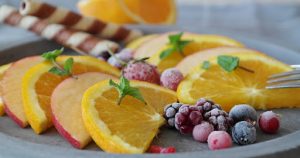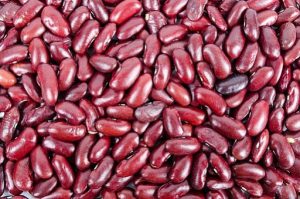There has been a lot of talk about plant-based diets lately. While we see a gradual shift towards plant-based diets in the West, not a lot of people fully understand what makes a plant-based diet. So what does a plant-based diet contain?
According to a Gallup Poll in 2018, 5 percent of the US adult population reported being a vegetarian. While that number may look very small, it’s promising. It goes to show that a lot of us have made a commitment to stay healthy.
It’s no secret that plant-based diets are some of the most well-balanced and healthy diets. In contrast, the traditional Western diet filled with meat and processed foods are linked to myriads of diseases and health conditions. No wonder obesity rates are higher than ever, and heart disease remains the number one killer.
A plant-based diet may just be the step in the right direction for all kinds of people. If you’re healthy today, you want to make sure you stay healthy tomorrow. This lifestyle could help you ensure and prevent diseases.

What is a Plant-based Diet?
A plant-based diet is the one that mostly or wholly focuses on foods that come from plants. When we think of plants, most people just assume fruits and vegetables. A plant-based diet also contains whole grains, nuts, and seeds. All of these food groups come from plant sources.
Some people consider a plant-based diet as a vegetarian diet. While it’s technically vegetarian, a plant-based diet simply focuses on whole plant-based foods. It also cuts out or greatly reduces animal-based products and processed foods.
Types of Plant-based Diets
There are different kinds of plant-based diets that differ by the foods they allow. Some may be healthier than others.
Here are four main types of Plant-Based Diets:
Flexitarian or Semi-Vegetarian
A flexitarian or semi-vegetarian is the most flexible form of a vegetarian diet as it focuses on vegetables but also occasionally includes meat, dairy, and eggs. This is the kind of diet that uses vegetables, fruits, and other plant-based foods primarily, but also animal products in smaller quantities or not as frequently.
Many of the diets around the world can be considered flexitarian. A Mediterranean diet, which has scientifically been proven to reduce the risk of heart disease, is a flexitarian diet. Even though it includes meat, it focuses on fish, yogurt, eggs, cheese and includes mostly plant-based whole foods.
Pescatarian
A pescatarian diet includes plant-based foods, eggs, fish, and dairy, but excludes red meat and poultry. While it may not be as healthy as other plant-based diets, the exclusion of red meat does make it comparatively healthier than the traditional American diet.
Vegetarian
A vegetarian diet includes mostly plant-based foods, but with certain exceptions. It does not contain any kind of meat but does allow eggs and dairy. That’s why it’s further divided into three subtypes:
Lacto-Ovo Vegetarian: This diet contains both eggs and dairy, in addition to traditional plant-based foods.
Lacto Vegetarian: This type only contains dairy in addition to plant-based food groups.
Ovo Vegetarian: As the name indicates, this one allows eggs but not dairy, in addition to the regular plant-based foods.
Vegan
Vegan is a form of a plant-based diet that excludes all kinds of animal-based products and byproducts. This means no eggs or dairy either, in addition to excluding all types of meat. It’s the most restrictive form of a plant-based diet that has transcended into a lifestyle for many.
What Does a Plant-based Diet Contain?
Some people assume that a plant-based diet contains vegetables, and that’s all. That’s far from the reality as there are many plant-based food groups out there.
Even if we assume for a second that this type of diet is just veggies, it would be challenging to attain the typical 2000 calories per day intake for a person. But since that’s not the case, you can eat a whole variety of things to meet your caloric requirements.
Vegetables and Fruit
Yes, vegetables and fruit are sort of the mainstays when it comes to plant-based eating. You would be eating a whole lot of them. Vegetables and fruit contain a lot of fiber that’s missing from an average American’s diet.

Aside from fiber, these vegetables and fruits go beyond providing daily nutrients. They contain minerals and antioxidants. Antioxidants, in particular, are great for your health as they fight the free radicals in your body. Those free radicals can cause cell damage and result in conditions such as cancer.
Whole Grains
If you follow a standard Western diet, you do get some grains, but those are usually refined. A plant-based diet focuses on whole grains, which are way healthier than their refined counterparts. And there’s quite a lot of variety other than the good old whole wheat. You have oats, barley, rye, quinoa, etc. to add to your meals throughout the week.
Beans and Legumes
It wouldn’t be wrong to say that beans and legumes are the most underrated foods. These beans and lentils are packed with fiber and protein. Yes, they can provide you the same amount of protein as you would get from red meat or poultry minus the health risks.

Beans and legumes can be pretty delicious as well, depending on how you prepare them. It’s a central food in many Asian cuisines, as well as the Mediterranean diet.
They also contain some very important nutrients that aid with digestion, such as phytic acid and lectin. In fact, lectin makes up nearly 10 percent of the content of legumes, according to one study.
Nuts and Dried Fruits
You can eat nuts and dried fruits with your regular meals, but they make up a healthy snack to munch on. Yes, even snacking is super healthy when you’re following a plant-based diet. There’s just so much variety of nuts, and each type offers its unique benefits.
From the protein in cashews to the calcium in almonds, there are all kinds of nutrients and minerals in these nuts. Some of them are also rich in fats, and those are the good kind of fats. Just make sure to eat these in moderation as they are very calorie dense.
Similarly, dried fruits are also quite nutrient-dense. They can serve as a sweet snack, and you can even add them to your oatmeal or savory dishes like rice pilaf.
Seeds
Since seeds contain all the necessary nutrients that are needed for them to grow into a plant, they are extremely healthy. Some of the most commonly consumed seeds include sunflower seeds, pumpkin seeds, chia seeds, flaxseeds, and sesame seeds.
These are usually heavy in calories, so even a little amount goes a long way. Seeds can also add a different texture to your salads and other dishes. You can even use them in desserts. Ever heard of chia seeds pudding? Delicious.
Plant-based Meat
If you thought a plant-based diet would make you say adieu to meat forever, you’re wrong. You can enjoy the taste and texture of meat from time to time. How? There are many plant-based meat alternatives available in the market today.

These are processed foods, so you’re not encouraged to eat them regularly. However, they are often a healthier alternative to red meat, fish, and poultry. Thanks to scientific innovation, many companies have come up with traditional meat products that are fully plant-based or vegan. From burgers to grounds to fish fillet, you can enjoy those traditionally meat-based dishes as well. Again, I usually encourage these items as transitional foods only while going GREEN.
Plant-based Diet and Calories
No matter what kind of diet it is, people are always concerned about calories. And that’s where plant-based diets stand out. You can simply stop worrying about calories with a plant-based diet, as many foods are essentially low calorie.

Even those foods that contain higher calories don’t make you fat. They contain a lot of fiber and water that fills you up even when you eat a small portion. When your stomach feels full, it signals your brain that you’re no longer hungry. As a result, it kind of automatically does portion control without you needing to do all the math.
More importantly, every calorie you consume is nutrient-dense. Unlike the calories in processed foods, whole foods don’t contain empty calories. Plus, they don’t contain trans fats that are mostly found in fried foods and processed meat. In other words, don’t be surprised if you find yourself actually dropping a few pounds, even though you are eating MORE while plant-based. It can be a pleasant surprise, if you have a few ‘lbs’ to lose, like I did.
Because of this caloric control, a plant-based diet promotes healthy weight management. If you’re overweight or obese, you’ll lose weight. For normal and underweight individuals, it will help maintain their current weight.
The Whole Package
You always hear about relationships that you can never get the whole package. Well, as far as the diet is concerned, you can get the whole package. A plant-based diet is extremely well-balanced when it comes to nutrients, minerals, and vitamins.

People often start obsessing over particular nutrients, like going all-out on proteins or cutting out carbs completely. That’s not a healthy or natural approach. We’re supposed to get all the essential nutrients, minerals, and vitamins that our body needs to function.
A whole-food plant-based diet does exactly that by providing you with a balanced intake of nutrients. Nothing is too little or too much, which leads to better health overall. Sure, you can tweak it a bit to meet certain goals, but in general, it’s highly balanced.
Tips on Eating Plant-based
If you’re convinced that a plant-based diet is good for you, these small tips will come in very handy. The transition is not always the easiest, especially if you’ve been eating a lot of meat and processed foods for many years. However, you can gradually build yourself up to follow a complete whole-food plant-based diet.
- Add a variety of vegetables, fruits, whole grains, and legumes to your diet to make it more fun and delicious
- Keep a light hand when it comes to nuts, seeds, tofu, and refined flours, as they can be high in calories
- Gradually move away from meat and eggs, by reducing the frequency per week or opting for meat alternatives
- Consider cooking with NO OIL, or minimal oil, if any. It’s easier than you think and can have a tremendously positive effect on your health and waistline. Check out our blog, HOW TO COOK WITHOUT OIL, for tips.
- Minimize refined foods and sweets in your life even if they are technically plant-based
- Minimize so-called bad carbs such as white rice and white bread
FAQs
Can I Get Enough Protein from a Plant-based Diet?
This is a common concern for people who assume that meat and poultry are the only sources of protein. You can easily get the same amount of protein from plant-based sources. Foods such as tofu, beans, legumes, and nuts are quite rich in protein.
For instance, a 100-gram steak contains 25 grams of protein. Similarly, 100 grams of kidney beans give you 24 grams of protein. You can easily get the daily required value of protein on a plant-based diet (46 to 56 grams of protein for an average person, according to Dietary Guidelines for Americans).
How Will I Get Vitamin B12?
Some of the complex B Vitamins, such as Vitamin B12, are only found in animal products. But if you’re following a strictly vegan diet, you can get it through supplements or food that’s fortified with Vitamin B12.
You can also get it through some plant sources, such as seaweed, tempeh, and mushrooms. If you’re a Lacto-Ovo vegetarian, you’ll still get plenty of it through eggs and dairy.
Can You Lose Weight on a Plant-based Diet?
A plant-based diet is a great solution for losing weight without compromising your health. If you’re cutting down certain nutrients or starving yourself, you will lose weight but at the expense of your health. However, a plant-based diet keeps you well-fed while also making you lose weight.
It does not contain any fattening foods as such. More importantly, it’s rich in fiber, which improves metabolism and keeps you filled up. The calories in plant-based foods have high nutrient density, so they are super healthy.
It also depends on what type of plant-based diet you’re following. A whole-food plant-based diet is the best route for weight loss, especially when combined with exercise.
Wrap Up
Now, if someone ever asks you what a plant-based diet contains, you know all the amazing things it contains. With the food industry also focusing on healthy plant-based foods, there’s a lot more variety today. It’s safe to say that a plant-based diet is also quite delicious.
If you find it hard to follow a plant-based diet, you can opt for a meal plan that does all the work for you. And always remember to enjoy all the plant-based foods you love in particular.
You may also like: WHAT CAN YOU EAT ON A PLANT-BASED DIET? >>CLICK HERE!










